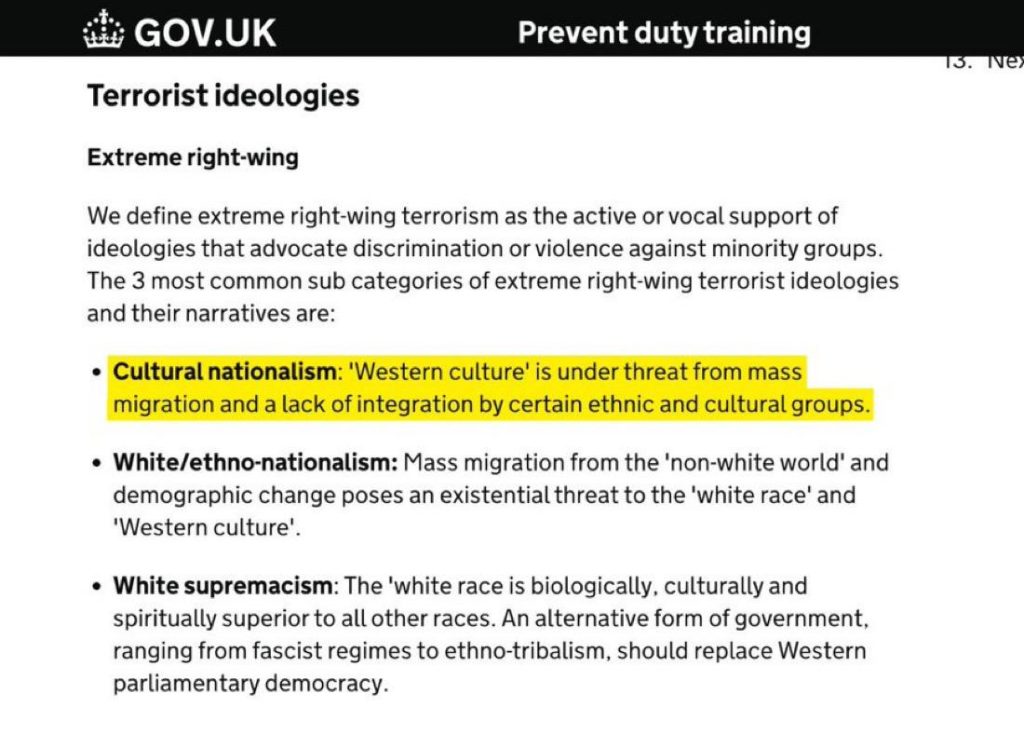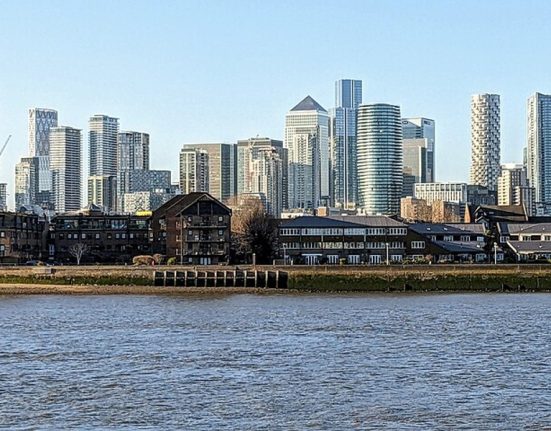‘Today you’re an extremist if you voice concerns on immigration’
Immigration is now the number one issue facing the UK, according to multiple recent polls.
YouGov, Ipsos, and the Migration Observatory all report rising levels of public concern, not just about the scale of migration, but its effects on national identity, services and cohesion.
Yet, when ordinary Britons voice unease – particularly around integration – they risk being categorised as “extreme.” That’s not just misleading. It’s dangerously counterproductive.
Government definition – intended to stifle debate?
A Prevent duty training document from GOV.UK, recently circulated online, categorises “cultural nationalism” – defined as the belief that “Western culture is under threat from mass migration and a lack of integration” as a key subcategory of extreme right-wing terrorist ideology.
While the document is intended to identify radicalisation risks, it draws a line that many ordinary people may feel unfairly includes them.

Commonsense conversation v thought police
After all, being concerned about the direction of the country, the dilution of shared customs, or the seeming failure of some immigrants to integrate isn’t the same as promoting hatred or violence.
It’s normal. It’s human. And it’s a feeling shared by millions. More In Common found that 47% of Britons believe multiculturalism is not working because “people do not integrate into British society.” That figure cuts across demographics and political lines.
Govt alienating swathes of Britons
To suggest that such views are inherently radical is to ignore public sentiment and alienate large sections of society. Change – especially rapid change on a national scale – will always cause friction. But repressing discussion only deepens the divide.
Lanyard-wearing political and corporate classes to blame
The real failure lies not with the public, but with the political class. For too long, successive governments have failed to manage migration in a way that balances economic need with social cohesion.
They’ve welcomed people in but underfunded the systems – language support, community programmes, local housing – that make integration possible. The result? Fractured communities and mutual suspicion.
If anything, it is the state’s failure to encourage and require meaningful integration that has contributed most to our cultural tensions. We don’t need less debate – we need more honest, respectful conversations about the kind of society Britain wants to be.
That means recognising that diversity alone is not unity. Integration is not automatic. It requires policy, planning, and political will. The state must lead – not by silencing dissent, but by addressing legitimate concerns with real action.
These politics are mirrored by the lanyard brigade in countless corporate entities. HR people devise policies and new values for their employees to follow in line with their rigid view of “diversity, inclusion and authenticity.” The apparent freedom is anything but. Voice a view which doesn’t align precisely with the prescribed view and expect to be dealt with swiftly.

‘It’s not radical to want your community to feel familiar’
To characterise cultural unease as extremism is to miss the point – and an opportunity. It’s not radical to want your community to feel familiar. It’s not extreme to ask that those who join your country share its values and participate fully in its civic life.
If the government continues to ignore these realities, Britain will become not a tolerant melting pot, but a dangerously divided society. The political class must step up – not with slogans, but with a plan to unify, integrate and restore faith that the national interest still includes everyone.
Otherwise, the state really will have got its priorities wrong.







